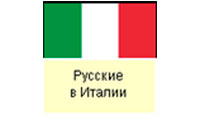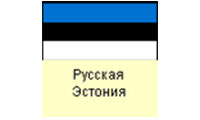Bishop Alexander (Zaķis)
Alexander (Zaķis; 6th/18th of September 1834, Livonia Governorate, Russian Empire – 18th/30th of July 1899, Vitebsk, Russian Empire) – the Bishop of Polotsk and Vitebsk, the first Orthodox bishop – ethnic Latvian.
Andrejs Zaķis was born into a Latvian Lutheran peasant family. The parents, brothers, and sisters of the future bishop (thirteen in total) lived at the Zile farmstead, Keizen estate, in the Wenden (Cēsis) district. Later, the family moved to the Puikule estate, Krievini farm, in the Wolmar (Valmiera) district of the same province. Apparently, in the late 1840s, the family converted to Orthodoxy.
Thanks to the help of Archbishop Platon (Gorodetsky) of Riga and Mitava, who noticed Andrejs during one of his visits to the parish school, in 1851 he was admitted at public expense to the Riga (Orthodox) Theological School, after which he continued his studies at the Riga Theological Seminary. He graduated among the best students in 1859. Upon completing his studies, he married.
In 1858 he was transferred from the peasant into the clerical estate. After graduating from the seminary, on July 16, 1859, Archbishop Platon (Gorodetsky) ordained Andrejs Zaķis a priest of the Ubbennorm Church (today Pociems) of the Dormition of the Most Holy Theotokos in the Wolmar (Valmiera) deanery district.
In 1860 Fr. Andrei was appointed rector of the Church of St. Nicholas the Wonderworker in Lielvārde. It was there that his wife suddenly passed away, leaving the young priest a widower.
From 1860 to 1861 he had been teaching canon law at the Riga Theological Seminary. In 1861 he entered the Kyiv Theological Academy, which he graduated from in 1865. On July 27, 1865, Fr. Andrei Zaķis took monastic vows, receiving the name Alexander. In 1867 he received the degree of Master of Theology.
From 1865 he again taught at the Riga Theological Seminary, offering courses in Latvian language, Russian grammar, theology, homiletics, general history, and Russian history. In 1870–1871 he served as an inspector of the Riga Theological Seminary. He also collaborated with the spiritual journal The School of Piety. In 1871 he was appointed rector of the Mogilev Theological Seminary and superior of the Mogilev Brotherhood Epiphany Monastery, and was elevated to the rank of Archimandrite.
On October 25, 1883, an Imperial Decree appointed Archimandrite Alexander (Zaķis) a bishop. On November 21, 1883, in the Holy Trinity Cathedral of the Alexander Nevsky Lavra in St. Petersburg, he was consecrated Bishop of Ostroh, Vicar of the Volhynian Diocese.
From 1890 he had served as Bishop of Arkhangelsk and Kholmogory. However, he did not tolerate the northern climate well, fell gravely ill twice, and asked the Holy Synod to transfer him to another diocese. In 1893 his request was granted, and Bishop Alexander was appointed abbot of the Moscow Stavropegial Simonov Monastery.
On September 3, 1893, he was appointed Bishop of Polotsk and Vitebsk. Thus, part of present-day Latvia also came under his jurisdiction, since Latgale, the eastern region of Latvia, then belonged to the Vitebsk province, and its Orthodox parishes were under the care of the Bishops of Polotsk and Vitebsk.
On October 24, 1893, in the Vitebsk Dormition Cathedral, Bishop Alexander celebrated the first hierarchical Divine Liturgy in Latvian. He continued to celebrate such services regularly thereafter and frequently visited the Orthodox parishes of Latgale.
At his initiative, broad missionary activity among Latvians in the diocese was begun. A special position of “Latvian missionary” was created. Parishes with predominantly Latvian populations were assigned priests who knew Latvian and were often of Latvian origin themselves. Several parish schools for Latvians were opened during his tenure (for example, in Varakļāni). At Bishop Alexander’s initiative, funds were annually allocated in the Vitebsk Diocese for the publication of spiritual literature in Latvian. Scholarships for Latvian students were established at the Vitebsk Theological Seminary.
Despite severe illness, he continued to celebrate liturgical services until the end of his life. Contemporaries remembered Bishop Alexander as a kind, humble, and always responsive person.
Bishop Alexander died on July 18 (30), 1899, in Vitebsk after a long illness. He was buried in the St. Nicholas Cathedral in Vitebsk, in the left side chapel.
Text prepared by Sergey Tsoya
Sources of information:
Высокопреосвященнейший Александр, Митрополит Рижский и всея Латвии. Преосвященнейший Александр (Заккис) – первый православный епископ-латыш. – Латвийский православный хронограф. Ред. прот. Олег Пелевин. Выпуск второй. – Рига: Синод Латвийской Православной Церкви, 2016, стр. 5–18.
Его Преосвященство, епископ Полоцкий и Витебский Александр. «Рижские епархиальные ведомости», 1899 год, № 18, с. 733-742;
Преосвященный Александр, епископ Полоцкий и Витебский. «Прибавление к церковным ведомостям», 1899, № 32, с. 1278-1279;
Гаврилин А.В. Люцинское (Лудзенское) благочиние во второй половине XIX – конце 30-х годов XX века. Рига, 2013. С. 16, 19-20, 22;
Использованы также некоторые дополнительные материалы из интернет-ресурсов.



.png)



